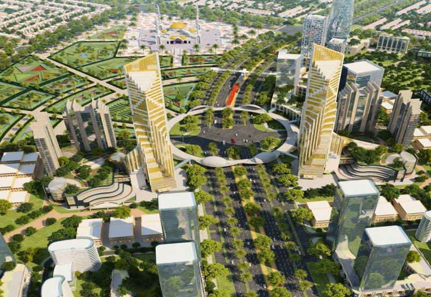i INP-WEALTHPK
Ayesha Saba
Prioritizing smart city policies is essential to tackle Pakistan’s urban challenges. By promoting public-private partnerships (PPPs), aligning strategies, and investing in infrastructure and human capital, the governments can transform the urban centers into hubs of sustainability, economic growth, and social progress.

Talking to WealthPK, Kamran Ali, Assistant Director of Urban Planning, Punjab Intermediate Cities Improvement Investment Program (PICIIP), said rapid urbanization in Pakistan, with an increasing population moving to the urban centers, had highlighted the urgent need for smart city initiatives to address the country’s growing challenges.
He emphasized that the smart cities concept, which involved integrating advanced technologies into urban planning, was no longer a luxury but a necessity for sustainable development. “Pakistan’s urban areas, including Karachi, Lahore, and Islamabad, face critical issues such as traffic congestion, inadequate housing, inefficient waste management, and deteriorating infrastructure.
These problems, if left unaddressed, will lead to economic inefficiencies, environmental degradation, and reduced quality of life for millions of residents. “Governments alone cannot bear the financial and technical burden of smart city development. Partnerships with the private sector are essential to attract both investment and expertise,” he said.
According to him, PPPs can accelerate the development of digital infrastructure, including IoT systems, smart grids, and efficient public transport solutions, which are essential components of any smart city framework. He informed WealthPK that the Punjab government, under its Local Government & Community Development Department, had introduced its first Smart City Strategy through the PICIIP under output 4.
This initiative focuses on developing a long-term strategy and roadmap covering six key areas: smart governance, smart environment, smart living, smart economy, smart mobility, and smart people. It also outlines smart solutions and projects for short-, medium-, and long-term implementation to ensure efficient and resilient urban management.
In the short term, pilot Smart City solutions have been planned for implementation in Sialkot and Sahiwal. Preliminary need assessment, e-readiness, and situation analysis have been conducted for these cities. According to Kamran, the China-Pakistan Economic Corridor (CPEC) provides a unique opportunity to align smart city initiatives with broader infrastructure projects, particularly in the emerging urban areas.
Special Economic Zones (SEZs) developed under the CPEC could integrate smart technologies, providing a model for sustainable urban development. Initial steps should include identifying pilot cities, setting clear objectives, and developing regulatory frameworks to attract private sector involvement.
Examples from countries like Singapore and South Korea demonstrate that targeted policies, combined with robust governance, can lead to transformative results. The transformation to smart cities is not just an infrastructural shift but a holistic approach to urban living. He argued that collaborative efforts involving the government, private sector, and local communities were needed to ensure the success of these initiatives.
Credit: INP-WealthPk









